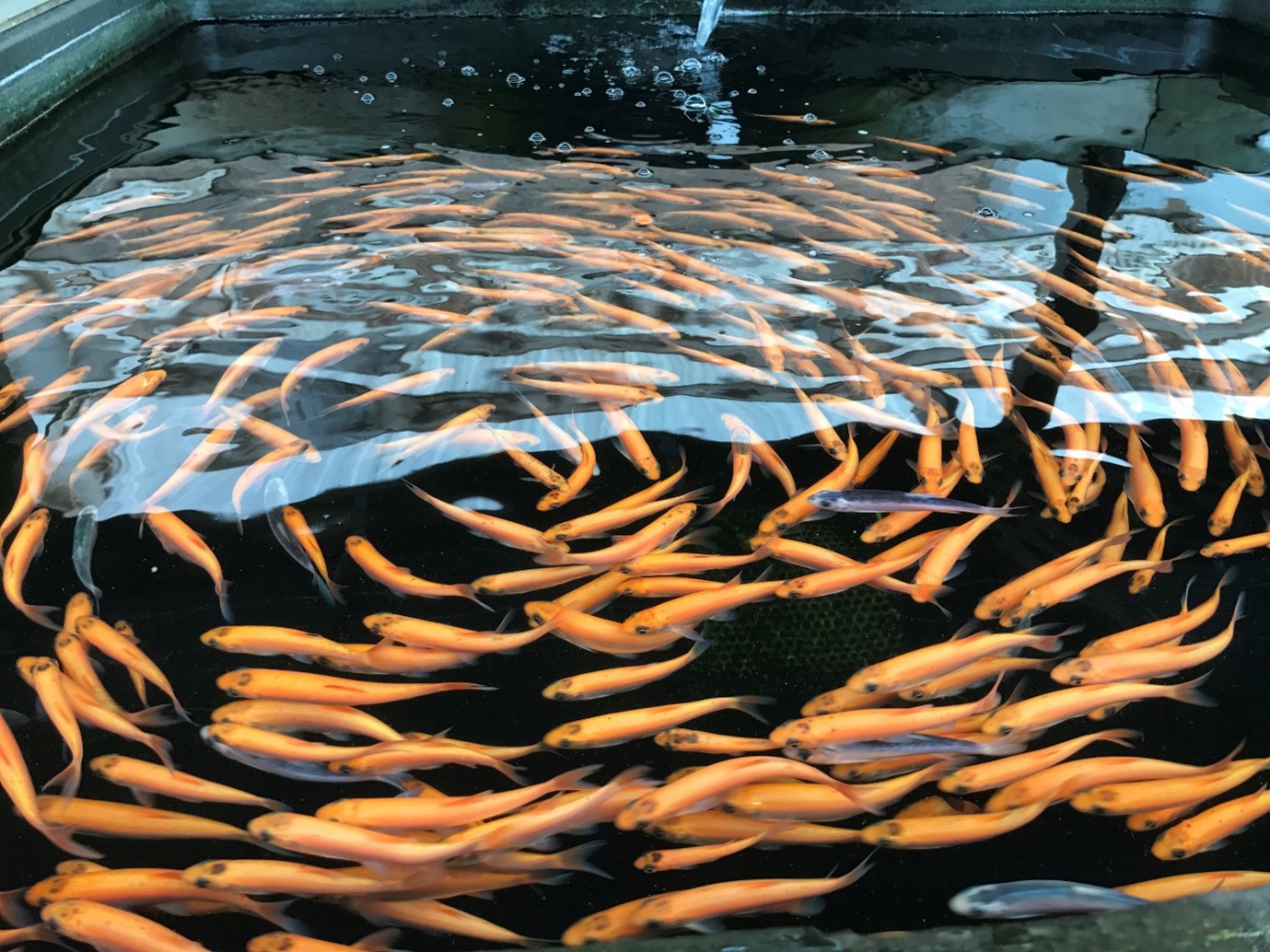What's in Store - April 2021?
This time last year we really didn’t know what was going to happen as we entered the first lockdown. Since 1984 we’ve been all about selling fish in bricks and mortar shops, a process which involves trading with trusted partners in a number of countries as well as here in the U.K. So many unanswered questions and the fate of hundreds of employees suddenly became uncertain.
Up and down the country, we watched for updates - the news that we could remain open whilst observing restrictions was very welcome. From head office to the stores, we put new protocols in place with PPE and hand gel, while we waited for news of our suppliers. The well-oiled machine of our logistics had been stuffed with sand and the predictability that makes moving delicate aquatic animals around the world had vanished.
Some of our branches were closed due to measures affecting garden centres but as specialist pet stores, we were generally seen as essential retailers.
During this time, our staff were under a lot of pressure. In addition to their normal responsibilities, there were considerations such as having to wear masks, use sanitiser and the concerns that they might be risking the health of vulnerable family members at home. These new daily anxieties were shared by many of our customers, and it was very rewarding to see how these times brought out the best in people. We’d like to thank the many people who did their best to make these strange times as pleasant as possible, on the days when the actions of others may have meant these efforts were even more valuable. Thank you for standing by us during the frustrations of queues, masks, supply issues and staffing problems caused by factors beyond our control.
Some of us were furloughed and those who weren’t were spending more time than ever before at home. This is when our pets became the heroes of lockdown, providing us with an escape to a tranquil world and filling our time with maintenance and upgrades. There’s been something of a revival in aquarium keeping, as well as pet keeping in general of course. We hope that as many people as possible will have chanced upon the lifelong hobby that unites us all, whether your fishes live indoors, outdoors, in salty water or in fresh.
As the vaccine roll out brings hope for the beginning of the end, we look forward to not only a return to normality, but an improvement on it. As our staffing levels recover, we’ll hopefully not have to choose between presentation and maintenance, our deliveries will once more become predictable and some of the extra costs incurred during these difficult times will start to disappear. We hope that you’ll join us in looking forward to these better times with optimism as the pond season ushers in a new start.
It’s easy to forget how fortunate we are as fish keepers to be in an era when big advances are being made. Not only is it possible to build a reef from captive propagated corals, previously problematic species such as this beautiful Red Goniopora at our Reefkeeper Rugby store are now capable of thriving thanks to advances in nutrition. With the benefit of hindsight, it’s perhaps no surprise that a coral found in turbid environments in the wild was struggling in the plankton-poor surroundings of pristine aquaria.
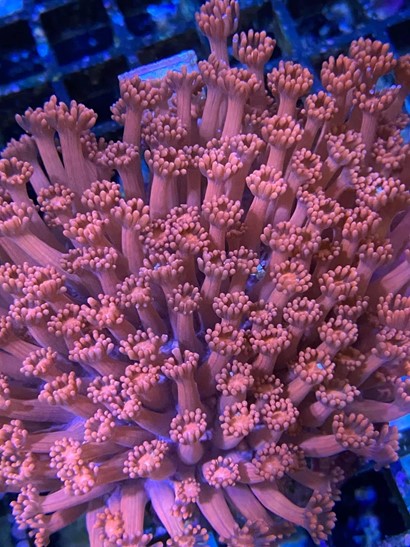
Primulas are some of the first plants to flower in the early spring and are popular with early bumblebees. Happy in sunshine or shade if they have moisture at their roots, these plants will often self-seed in a bog garden and look very eye-catching en masse. Typically, Primula rosea and P. denticulata bring the first splash of colour to our early-season plant tables and are generally undaunted by the frosts.
It's an exciting time for our pond sections in store, as the new season plants really bring them to life. See what's happening in your local branch now and get a healthy dose of spring optimism!
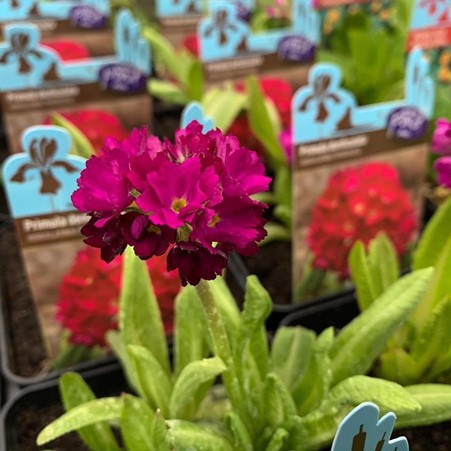
Known by the native people of their home range as 'canoe-eaters' for their habit of chomping on waterlogged wood, these beautiful young L190 Royal plecs (Panaque nigrolineatus) at our Cardiff store are still amongst the least controversial royals out there. Not a fish for small, or planted aquaria, but well worth the effort in a larger set up.
See more about these animated sanders here: https://www.fishkeeper.co.uk/.../catfish/royal-plec-l190/
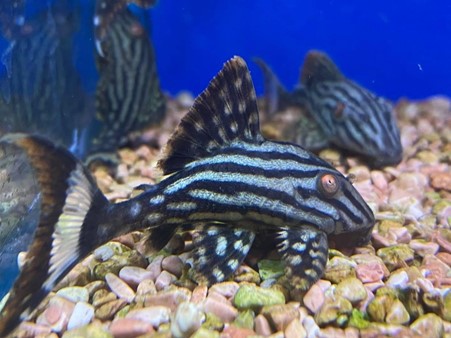
The aquarium hobby moves faster than the branch of science known as fish taxonomy. This means that new fishes are introduced to the trade faster than ichthyologists can describe and name them scientifically, giving rise to alternative ways of cataloguing them. This is why trade names and code numbers exist, especially when it comes to diverse groups such as catfishes.
One such fish has recently been classified by a group of scientists that includes Rebecca Bentley, part of the team at our Ascot store. We’re very proud of her contribution, especially as there’s often a tendency for retail staff to be underestimated by the online fish keeping community.
Previously known as the Narcisso cory, it will probably still be shipped as C. narcissus by exporters for a while but Corydoras sp. (CW006) is now officially Corydoras bethanae. At least until the genus Corydoras gets split anyway but that’s a topic for another time!
See their databank profile for more information on this beautiful fish, which you’ll see in many of our stores: https://www.fishkeeper.co.uk/.../catfish/narcissus-cory
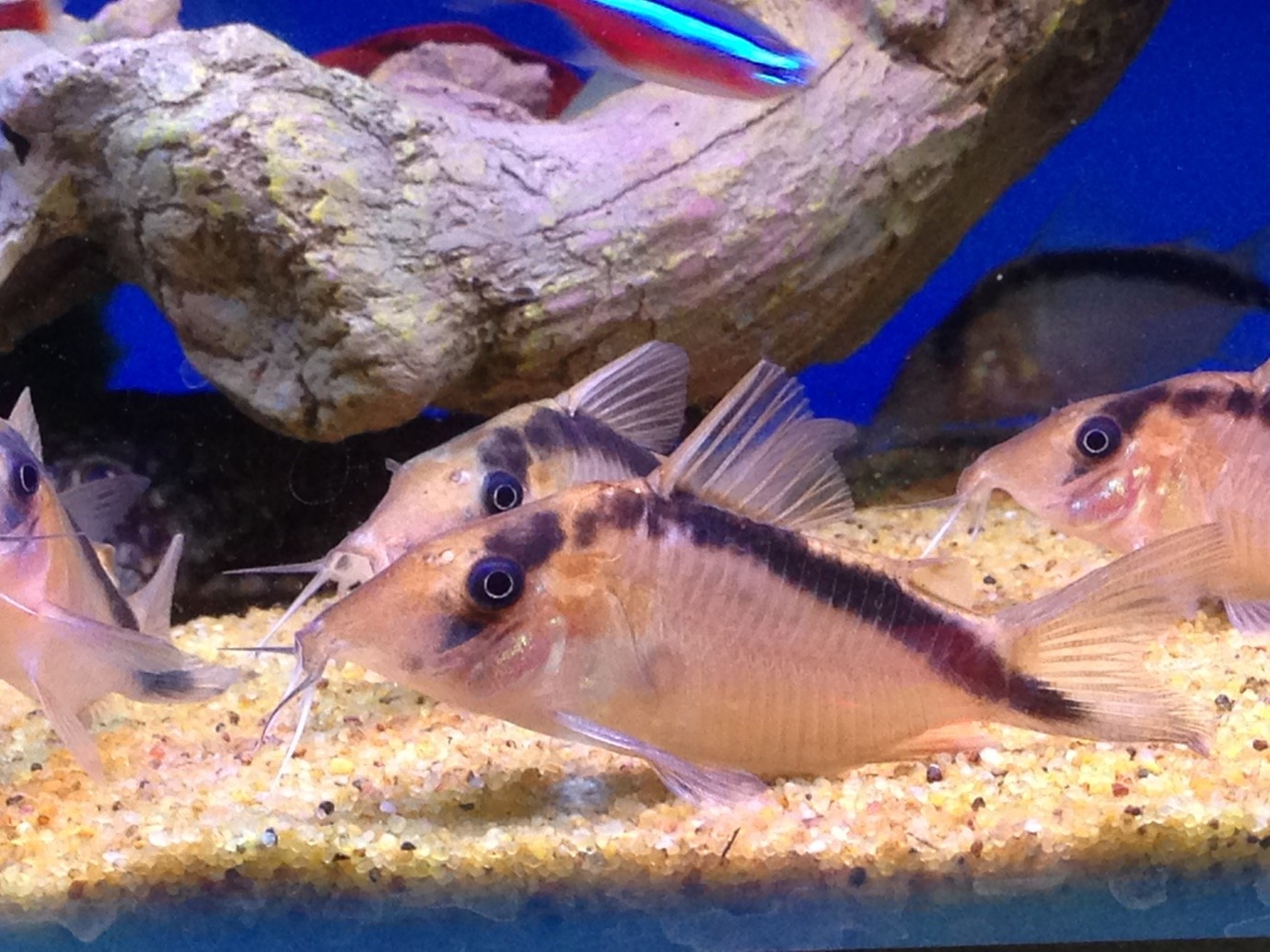
Golden orfe are a classic pond fish that don't feel the cold like koi and goldfish do. Their wild ancestors are still found in European rivers and share a preference for cool water, rich in oxygen. This means that they are perfect for adding to a pond early in the season and will often be amongst the most active fishes in our vats at Easter.
Read more about these lively surface-dwellers here: https://www.fishkeeper.co.uk/.../pond-fish/golden-orfe-
